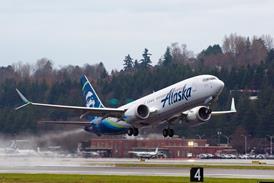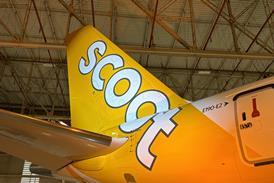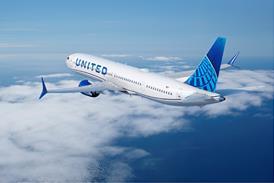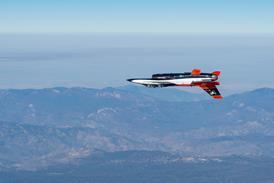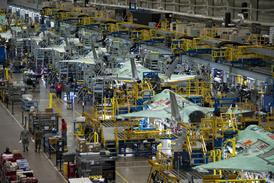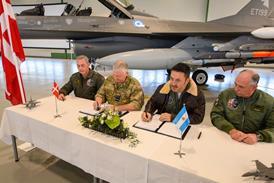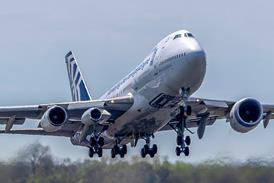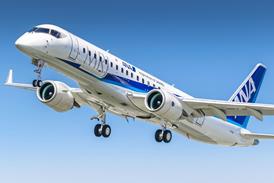Oneworld carrier's move to pull inventory from travel website Orbitz sets distribution shake-up in motion
It is not without irony that the airline credited with helping to create one of the world's first computer reservation systems is seeking to carve out a new frontier that envisages a radically diminished role for such distribution vehicles.
American Airlines, whose late 1950s-era partnership with IBM ultimately resulted in the Sabre global distribution system, of which it later divested, is making no apologies for pushing a "Direct Connect" model that enables travel agencies to bypass GDSs and connect directly with the carrier's reservation data.
If Direct Connect is widely accepted, American will have helped fundamentally change the way airline inventory is marketed and sold in the USA, yet again.
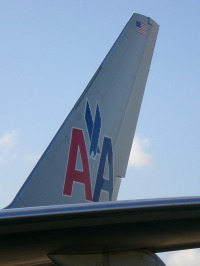 |
|---|
Adoption of the Direct Connect model "significantly disrupts a money flow that has been long established and long depended on by a number of intermediaries, including the GDSs, travel agencies and online travel sites", says Jim Davidson, chief executive of Farelogix, American's technology partner in Direct Connect. He predicts some established intermediaries will fight the planned changes "to the bitter end".
BATTLE LINES
The battle lines were drawn at the end of 2010, when American removed its inventory from Orbitz, after failing to reach a pact that would have increased the amount of American tickets processed through a direct connection with the online travel agency.
Orbitz is 48% owned by Travelport, and the latter "did not want to see more business than necessary" going through Orbitz's direct connection with American, notes Forrester Research analyst Henry Harteveldt.
The carrier's decision to drop Orbitz set off a chain reaction in the industry that saw rival online travel agency Expedia, a Sabre user, cease offering American's fares on its site when its contract expired in December, in an apparent show of solidarity with Orbitz and in retaliation against American's Direct Connect strategy. Before American could calculate the fallout from being dumped by the world's largest online travel agency, Sabre opted to disfavour the carrier's fare offerings from its GDS listings and eliminate booking fee discounts.
"I don't think American would have thought Expedia would have responded in the way they responded. That would have come out of left field for them," says Travel Technology Research founder Richard Clarke.
The Sabre blow prompted American to file a lawsuit against the firm in a Texas court. In its suit it says: "Travel agents, who are frustrated with the situation, have complained about Sabre's biasing, view American negatively because of it, and many of them are likely choosing to book tickets on airlines other than American." A temporary restraining order prohibiting Sabre from biasing the display of American's flights was quickly issued, which determined that American "produced evidence of and demonstrated a probable right of recovery against defendant Sabre" on its claim of breach of contract.
American says it intends "to vigorously pursue its litigation against Sabre, including seeking damages for other violations of our agreements".
Sabre, meanwhile, says it is confident that its actions are well within its contractual rights, "and we will aggressively defend against American Airlines' baseless claims to the contrary".
Other carriers are watching closely to see how it plays out. But few would dispute the current distribution model must and will change. "There is no question in my mind that airlines want to, once and for all, reduce if not eliminate entirely the cost burden they bear for GDS distribution. They want to seek a new model. And I think American is certainly a company willing to be very aggressive in its negotiations stance," says Harteveldt.
Whether Direct Connect is the only answer to the problem is another question entirely.
From a purely technological perspective, Direct Connect is billed as giving American and other carriers the ability to create more meaningful relationships with customers than the service currently provided by GDSs.
American wants flexibility in how it sells and prices seats with ancillary services, notes investment banking group AvondalePartners. "As Southwest Airlines sells 'Business Select' fares, combining the seat with early boarding, free drinks and extra frequent flyer credit, American would like the ability to package its fares with these or other services. Such bundling is not possible through the OTAs [online travel agents] or any other distribution outlets that flow transactions through the GDSs. American can offer the bundled product on AA.com. However, less than 30% of American's customers buy through AA.com."
Farelogix's Davidson points to American's website, which shows how the carrier is interacting with its customers at a much deeper level. "You sign in, and once you sign in, the airline bounces it up against its frequent flyer database and constructs a quick and deep scenario about who you are, what your loyalty status is, and if the carrier has done anything wrong to you in the past. All that information is there and that whole interaction is different than what you saw 10 or 15 years ago or what you see on a GDS display at travel agents," he says.
ANCILLARY OFFERS
"I believe American is saying to GDSs: 'The technology you have in place - all it does is commoditise me based on schedule and fare. I don't know the customer asking for my product, so I have to send you a generic lowest fare just to be competitive when it might be a frequent flyer I'd like to offer all kinds of ancillary things," he adds.
American doesn't mince its words when it talks about eliminating "unnecessary costs from middlemen that are no longer needed" because of Direct Connect. "It is a technology that allows travellers to compare schedules, fares, products and services, all of which allows consumers to make better and more informed purchase decisions for their travel and which is not available with outdated, inefficient systems used by some companies including Sabre and Travelport," says the carrier.
Sabre counters that it has been investing in its technology for years in anticipation that airlines would want to sell their products differently to drive ancillary revenues. "We help Qantas sell bundled fares and we do it for United [Airlines] to sell premium seats. We're helping airlines merchandise today," notes Chris Kroeger, senior vice president, Sabre Travel Network.
He says Sabre would like to reach an agreement to help American grow and sell its product differently. "We're in disagreement right now in how to do that. But overwhelmingly, the consumer groups and corporate associations have said this [Direct Connect] simply doesn't work for them. We're trying to find the balance of what works for the buyers and fills American's goals."
Industry analysts and observers are divided on whether American's actions will damage the company. Harteveldt says it is taking a very big gamble since Expedia and Orbitz combined generate as much as $2.4 billion in ticket sales for American.
"I don't believe American will be able to prosper to the same degree without two major travel agencies, like Orbitz and Expedia. Consumers tend to be brand agnostic towards airlines. Only the most frequent of flyers care about the airline they fly on, at least in the USA. The people who shop on the travel agency sites tend to be brand neutral," Harteveldt says.
Kevin Mitchell of the Business Travel Coalition also laments American's insistence on pushing Direct Connect. "While gazing over the travel distribution horizon, American no doubt perceived the game-changing benefits for itself from a Direct Connect strategy while boardroom blinders apparently prevented it from seeing the panoramic fatal flaw in its plans. In reality, what made 100% sense to American would indeed serve to impair critical aspects of the current distribution system (such as efficiency) of immense value and importance to TMCs [travel management companies], corporate travel departments, and importantly, American's codeshare partners and other airlines."
Clarke, on the other hand, predicts that American and Expedia will come "to some kind of arrangement", but that the two parties will not allow the details to be made public. "Expedia probably needs American and American probably needs Expedia, so it's a lovers' tiff."
AvondalePartners, however, believes the larger dispute with the GDSs will spread and American will eventually prevail. "As the situation evolves, American will likely lose some OTA customers to competitors. American's lost traffic will bump some low-fare business from the other airlines. But American should pick up the spilled traffic, given current loads," says AvondalePartners, noting that other airlines will "surely follow suit".
Farelogix's Davidson says a hybrid model may ultimately emerge. "It won't be just GDS distribution and web site distribution. It will be GDS distribution, some Direct Connect outside of the GDS and then the website."
He points to a recently reached deal between Air Canada and Travelport, whereby the carrier will sell tickets and services such as preferred seat assignments through the GDS. "Air Canada and Travelport have just announced a deal that is good for both of them so maybe that could be the template," he says.
But will a new distribution paradigm spell the end to GDSs? Absolutely not, says Clarke. "From a global perspective, I think it's a storm in the US teacup. People go to the internet to find cheap fares, and the USA is an ultra-competitive marketplace. That isn't the case as you get to Europe and Asia. In Asia, bilaterals dominate the marketplace, dictating who has the right to fly where. And Europe doesn't have the same distribution challenges as the USA does. In a fragmented market you need distribution. This is simply good old fashioned economics playing out."
GDSs like Amadeus and Sabre, which have diversified their business into airline IT, will continue to thrive, he says. "Travelport is in the more difficult position because it has less diversification for its cash generation ability. It is very dependent in cash terms on its GDS business, and its margins are dependent on the ability to charge the airlines a good price, and not have to pay too much of a financial incentive to the travel agents. It doesn't have a strategic back fall of the airline IT business that both Amadeus and Sabre do have," he says.
Join the debate at this year's Innovation in Airline Distribution conference in London
Source: Airline Business

